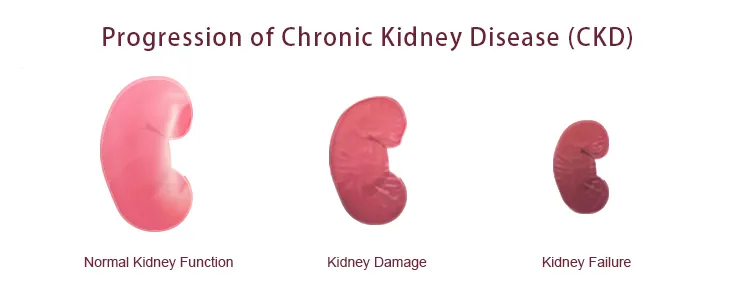
Up to 15% of the adult population in the world is suffering from CKD, and the percentage exacerbates with age. Unfortunately, most people with the uremic illness are neither well-diagnosed nor perceive their conditions. Once renal function deteriorates, kidneys are unable to filter out waste substances properly. These waste materials can enter the bloodstream and cause the manifestation of harmful effects that may eventually advance to end-stage renal disease (ESRD). If therapeutic intervention such as hemodialysis or renal replacement is not promptly prescribed, ESRD will be life-threatening. In addition to gradual loss of renal function, disorders in bone homeostasis, nerve functions, and cardiovascular system are also reported among CKD patients. Many of these retained wastes have been identified as Uremic Toxins (UTs), and etiological research has demonstrated that continual accumulation of UTs in circulation is closely associated with patients’ mortality, the morbidity of osteodystrophy and neuropathy, and accelerated atherosclerosis.
Indoxyl sulfate (IS)and p-cresol sulfate (pCS) are two representative protein-bound UTs. Colonic microbes in the gastrointestinal tract ferment amino acids from dietary proteins into various intermediates, subsequently absorbed and metabolized to UTs in the intestines or liver. IS and pCS's high ability to bind with serum albumin results in hemodialysis treatment's low removal efficiency (<25%). Intracellular oxidative stress-mediated by organic anion transporters (OATs) are considered to be the underlying toxicological mechanisms. Although there are laboratory tests like LC-MS/MS and HPLC to quantitate IS or pCS in serum samples or other body fluids, drawbacks like costly operating facilities and hard to be automated stimulate the need for a high-throughput and masstige device. To establish assay tools to facilitate CKD diagnosis and prevent complications derived from UT accumulation, we raised two monoclonal antibodies binding to IS and started modularizing them as medical devices for in-vitro diagnostics (IVD).

